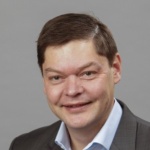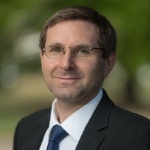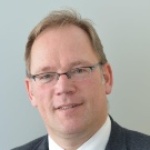Information for pupils
Here, pupils, scholars and students can find information about the University of Stuttgart
On this day, all faculties of the University of Stuttgart will introduce themselves to the public
Here you will find information on how to attend university lectures parallel to school activities
During the one-week BoGY internship, you will spend time at various institutes and gain exciting insights into different areas of aerospace. You will look over the shoulders of current research, work on small projects yourself and may have the opportunity to attend a lecture.
Then apply with your cover letter, CV and most recent reference at bogy@f06.uni-stuttgart.de
Programs
Aerospace Engineering is offered as a consecutive B.Sc.- / M.Sc. programme. It trains engineers to be able to solve continuously growing technological tasks in aerospace engineering and related fields using interdisciplinary and innovative methods. The six-semester bachelor programme has an emphasis on teaching sound fundamental knowledge that is then complemented with diverse up-to-date technical knowledge in the field of aerospace engineering. It aims to enable the students to work largely independently, which allows them to work flexibly in demanding professions. As a result, students have wide-ranging employment opportunities in different fields that require the implementation of the newest scientific methods and technologies.
The bachelor programme is divided into technical modules, key qualifications, a specialized internship, and the concluding bachelor thesis. The technical modules can be broken down into foundational modules that teach basic methodical knowledge, core modules that teach engineering competencies with a focus on aerospace engineering, and supplementary modules that teach practice-oriented competencies in aerospace engineering. In addition, the programme teaches interdisciplinary and discipline-specific key qualifications. The latter also includes the opportunity to complete team projects, possibly in collaboration with notable companies in the industry. Before being accepted to the programme, students must complete a basic internship. In the 6th semester, students are expected to complete a specialized internship in the industry to give them an inside view of operational processes and to open the door for professional opportunities in these fields. During the course of the bachelor thesis, students are offered involvement in current research and development projects.
Students can enter the master programme in aerospace engineering in any semester. Master specializations that build on the specializations and foundational knowledge gained in the bachelor programme include mathematical and physical model design, experimental and numerical simulation methods, information technology, materials and production processes, flight control and system technology, spacecraft design and construction, propulsion and energy systems, and space technology and space application. These specializations are offered with the goal of allowing students to gain specific skills and knowledge in two focus areas. To allow for a flexible application in demanding professional fields, students take supplemental modules. This well-grounded education not only qualifies students for employment in the aerospace industry, but also provides the best conditions for a successful career in a multitude of technology sectors.
The master programme, with a study period of four semesters, is divided into in-depth modules, specialization modules, and supplemental modules. The concluding master thesis aims to promote independent development of scientific topics and the application of scientific methods in aerospace engineering and their advancement in their chosen fields.
The Geodesy and Geoinformatics programme is offered as a consecutive B.Sc.- / M.Sc. programme.
A foundational education combined with a rich offering of specializations gives graduates of the programme the ability to quickly and flexibly adjust to new topic areas. This is necessary in order to rise to the diverse demands of different professional fields. On the one hand, geodesy and geoinformatics represent an engineering science that encompasses applied mathematics, information technology, physics, and aerospace technology. On the other hand, diverse parts of civil engineering, electrical engineering, and mechanical engineering also play a large role.
In the six-semester bachelor programme, basic modules give students a more detailed understanding of mathematics, physics, and information technology. The key modules, which build on the basic modules, teach the key competencies of geodesy and geoinformatics, which range from real estate to land surveying and earth measurement.
Furthermore, in these modules, students learn about official surveying through lecturers from governmental surveying institutions.
Especially for geodesy and geoinformatics, different ERASMUS cooperation agreements exist with the Technical University of Civil Engineering of Bucharest, the Technical University of Valencia, Budapest University of Technology and Economics, Wrocław University of Environmental and Life Sciences, and Delft University of Technology. Other international cooperations outside of Europe exist, as well, with the University of Calgary, Wuhan University, and the Bandung Institute of Technology.
Building on the first degree, the four-semester master programme leads to the acquisition of in-depth analytical methods and technical competencies in geodesy and geoinformatics. The master programme Geodesy and Geoinformatics is researchoriented.
Students can enter the master programme in Geodesy and Geoinformatics every winter semester. In addition to the specialization of the basic knowledge gained in the bachelor programme, there are many elective modules in the areas of surveying, geodesy, photogrammetry, and navigation.
Different courses are provided in cooperation with external lecturers/partners, such as the State Agency for Spatial Information and Rural Development, the City Office of Surveying of the City of Stuttgart, Daimler AG, Intermetric, the space agencies ESA and DLR, and the German Research Centre for Geosciences (GFZ) in Potsdam.
The international master programme GEOENGINE offers students with completed bachelor degrees in geodesy, photogrammetry, geodetic engineering or related studies a scientifically based education. Students can join the programme GEOENGINE in the winter semester.
The master programme takes four semesters to complete and is offered completely in English.
The programme builds on the knowledge gained in the bachelor programme and offers an in-depth education specifically in the areas of real-time positioning, navigation, multi-sensor integration, and telematics.
Contact for pupils
Contact

Tim Ricken
Prof. Dr.-Ing.Dean of Aerospace Engineering

Thomas Hobiger
Prof. Dr. techn.Dean of Geodesy & Geoinformatics

Andreas Strohmayer
Prof. Dr.-Ing.Audit Committee Chair







